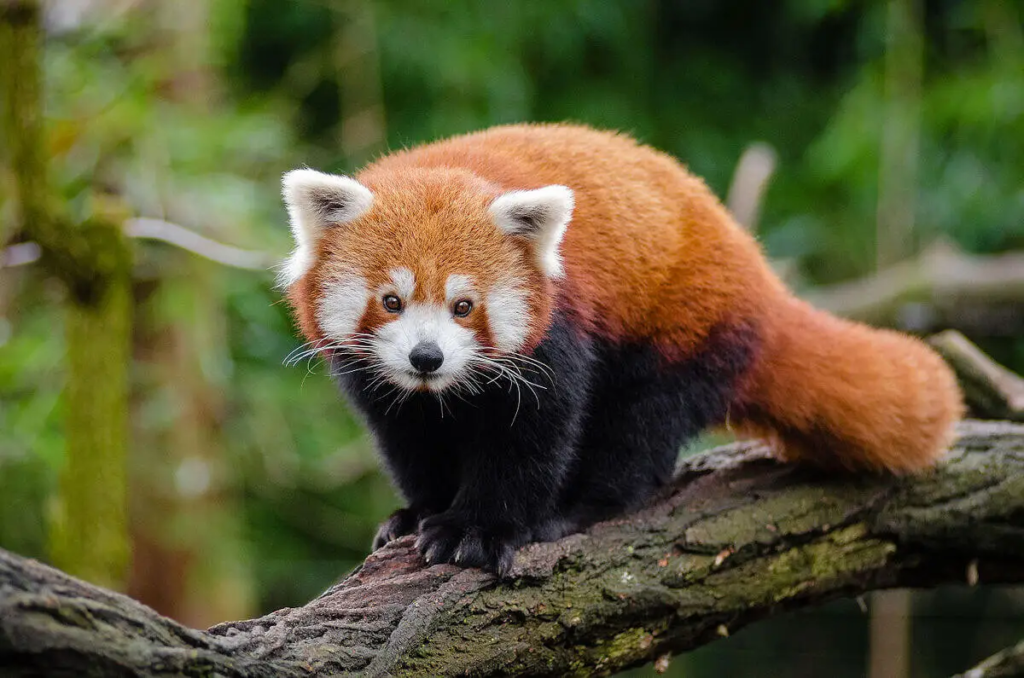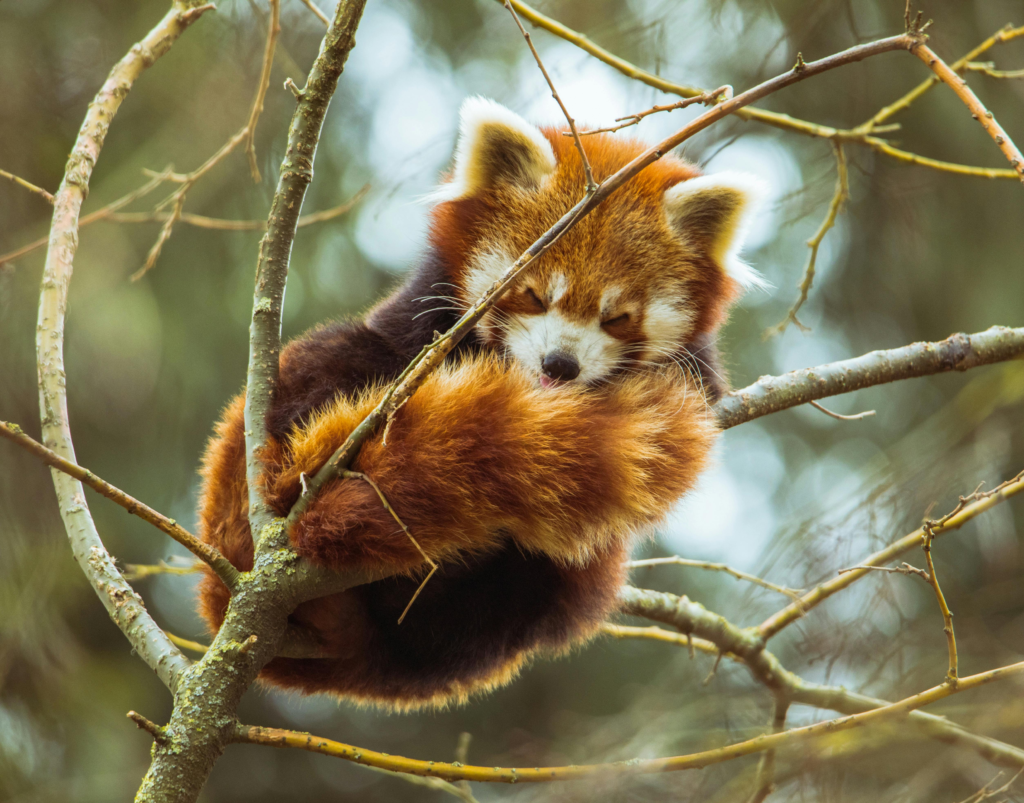Book Your Safari
Complete the form below to reserve your safari. Our team will confirm your booking and offer further details.
Complete the form below to reserve your safari. Our team will confirm your booking and offer further details.
Share your travel dreams, and we'll craft a personalised itinerary for you!
The quote provided is an estimate based on the information you supply. Final pricing may vary based on availability, changes in travel dates, and additional details.

Red pandas are one of the most enchanting and elusive creatures in the animal kingdom, captivating wildlife enthusiasts and nature lovers alike. In Nepal, the charm of these “fire foxes” is matched by the serene, unspoiled forests they inhabit. This article unveils the best-kept secret of Nepal: the rare opportunity to witness red pandas thriving in their natural habitat. Prepare for an adventure into the pristine Himalayan landscapes, where every step offers an encounter with unparalleled beauty.
The red panda, a shy and solitary animal, calls the dense, temperate forests of Nepal home. These habitats provide the bamboo-rich environment essential for their survival. Often overshadowed by their more famous counterparts like the snow leopard, red pandas are now emerging as a symbol of conservation in Nepal. The Himalayan nation provides some of the best opportunities globally to observe red pandas in their wild sanctuary.
The warm embrace of Nepal’s forests, combined with the quiet elegance of red pandas, offers a magical experience. A visit to see these animals is not only a bucket-list adventure but also a direct contribution to their protection.

Langtang National Park, located in central Nepal, is one of the premier destinations for spotting red pandas. The region’s lush vegetation, diverse flora, and rich bamboo forests create the ideal conditions for these creatures. Here, trekkers can combine scenic hikes with the chance to encounter red pandas in their natural environment.
Explore more about Langtang National Park through this guide on the official Nepal tourism site.
Rara National Park, known for its stunning alpine lakes and tranquil surroundings, is another red panda hotspot. The park’s remoteness provides a unique opportunity to experience undisturbed Himalayan ecosystems, perfect for wildlife observation. Here, visitors often spot red pandas during early morning treks.
For more about Rara’s ecosystem and how to plan your visit, visit Nepal’s Department of National Parks and Wildlife Conservation.
In the lush green hills of eastern Nepal lies Ilam, a district famed for its tea gardens and untouched biodiversity. Dense forests in areas like Sandakpur and Maipokhari are prime locations to observe red pandas. The local communities have played a crucial role in protecting these habitats, making it an ethical and enriching place to visit.
Learn about Ilam and its biodiversity through WWF Nepal’s initiatives.
The ideal time to visit Nepal for red panda sightings is between March and May or October and December. During these periods, the weather is pleasant, and the pandas are more active in their search for food. Early mornings and evenings are the best times for spotting them, as they are most active during these cooler hours.
Ensure you carry binoculars and maintain a safe distance to avoid disturbing these shy creatures.

Several tour operators in Nepal specialize in eco-tourism and offer guided treks to red panda habitats. Opting for these tours not only ensures a better experience but also contributes to conservation efforts. Check out Red Panda Network for ethical tour options.
Comfortable trekking shoes, warm clothing, and plenty of hydration are essential when visiting Nepal’s mountainous terrain.
The villages surrounding red panda habitats are home to warm and hospitable people. Supporting local homestays and buying handmade products adds value to the community-driven conservation efforts.

Tourism plays a pivotal role in protecting Nepal’s red panda population. Visitors contribute directly to local conservation programs through park fees, community lodges, and guided treks. Projects led by organizations like the Red Panda Network and WWF Nepal have seen a positive impact, with local communities actively involved in preserving these precious ecosystems.
What makes Nepal a top destination for red panda spotting?
Nepal’s temperate forests provide the perfect bamboo-rich environment for red pandas, making it a prime location for observing them in their natural habitat.
Can red pandas be seen year-round in Nepal?
Yes, but the best sightings occur between March-May and October-December when the pandas are most active.
How can I contribute to red panda conservation while visiting Nepal?
You can support conservation efforts by choosing eco-tourism operators, staying in local lodges, and donating to organizations like the Red Panda Network.
Are guided treks necessary to spot red pandas?
Guided treks are highly recommended as they ensure ethical spotting while minimizing disturbance to the animals.
Which parks in Nepal are best for red panda sightings?
Langtang National Park, Rara National Park, and Ilam District are some of the top locations.
What should I pack for a red panda spotting trip?
Pack warm clothes, trekking shoes, binoculars, a camera, and eco-friendly gear to ensure a safe and enjoyable adventure.
Nepal’s best-kept secret lies in its dense, untouched forests, where red pandas roam freely. Visiting these habitats is not just about witnessing a rare animal but also about connecting with Nepal’s pristine beauty and supporting the preservation of its fragile ecosystems. Whether it’s the awe-inspiring Langtang National Park or the serene tea gardens of Ilam, the journey to see red pandas is as rewarding as the destination itself.
For more travel inspiration and wildlife adventures, check out Travel Nepal’s official portal.